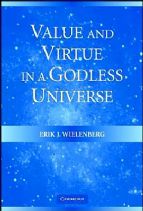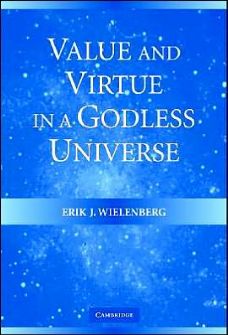What is a fact?
Facts are "obtaining or actual states of affairs." A states of affairs are "necessarily existing abstract entities that obtain or fail to obtain." Some facts are necessary, others are contingent. A necessary fact obtains in all metaphysically possible worlds, a contingent fact obtains in some but not all. For example the state of affairs where my dog is sitting next to me obtains contingently, the state of affairs where my dog is not identical to a number obtains necessarily. Some facts obtain because of the obtaining of other facts or state of affairs. For example the fact that my dog is sitting 3 feet in the air obtains because another state of affairs obtains, namely, that she is sitting in a chair. Whereas other state of affairs that obtain, can be called brute facts; "their obtaining is not explained by the explaining of other states of affairs." Many theists believe that the existence of God is a brute fact. God's existing cannot be explained by the obtaining of other states of affairs.
Non-Naturalism
Some facts involve ethical states of affairs. These obtain either contingently or necessarily. As Wielenberg says "that pain is intrinsically bad is not explained in terms of other state of affairs that obtain." The state of affairs that pain is intrinsically bad is a brute fact (in the same way the existence of God is a brute fact). Wielenberg calls such facts basic ethical facts. On a side note a contingent ethical fact would be as such: Imagine there exists a button that when pressed causes immense pain to a person, it is wrong to press this button, but only contingently so because there are possible worlds in which a pushing this button would not have such a bad ethical result. Wielenberg's continues to explain:
"such facts are the foundation of (the rest of) objective morality and rest on no foundation themselves. To ask of such facts, "where do they come from?" or "on what foundation do they rest?" is misguided in much the way that, according to many theists, it is misguided to ask of God, "where does he come from?" or "on what foundation does He rest?" The answer is the same in both cases: They come from nowhere, and nothing external to themselves grounds their existence; rather, they are fundamental features of the universe that ground other truths."
This then is the gist of non-natural ethical realism, their exist basic ethical facts, and these facts are brute meaning they can not be explained in reference to other facts.
How are Theists Committed to the existence of ethical facts
I will focus on the theistic ethics of Robert Adams and Wielenberg's analysis of Adams ethics as it pertains to his argument, because I think this is the most significant point of Wielenberg's paper. Adams puts forth a sophisticated divine command theory, moral laws derive from God's commands which in turn derive from God's necessarily Good nature. God's nature then "is the standard of excellence." The degree in which a persons character and actions resemble the divine nature is the degree in which this person is moral or good. Adams account then appears to describe the supervenience of the moral on the non moral. As Wielenberg explains:
"The supervenience of goodness upon the character of Marcus Aurelius. On Adams’s approach, this supervenience is grounded in the resemblance between Marcus Aurelius’s character and the necessarily existing divine nature.To keep matters simple, let us suppose that the aspect of Aurelius’s character that makes it good is mercifulness. On Adams’s account, the supervenience of goodness on Marcus Aurelius’s character is explained by the fact that the divine nature is essentially merciful. In any world in which Aurelius’s character is merciful, that character resembles the divine nature and hence is (in one respect at any rate) good."
Adams claim is then Good=God, this is modelled on a similar claim that water=H2O. Wielenberg explains in greater detail"Adams’s account is reductive in that it implies that (at least some) ethical facts and properties just are supernatural facts and properties. Facts about finite goodness just are facts about a certain sort of resemblance to God, and facts about moral obligation just are facts about God’s commands." These then are the basic ethical facts which Adams view is committed to: Good is just, merciful, and loving. Are these really basic ethical facts, aren't they grounded in the existence of God? No because Good=God! As Wielenberg enlightens us:
"In the context of Adams’s view, the claim that God serves as the foundation of the Good is no more sensible than the claim that H2O serves as the foundation of water. Indeed, once we see that, on Adams’s view the Good = God, we see that Adams’s theory entails that the Good has no external foundation, since God has no external foundation. It is not merely that Adams’s view fails to specify where the Good came from; the theory implies that the Good did not come from anywhere."
This is not to say that Adam's view is deficient, rather that non-naturalism and theistic theories of morality have the same basic structure. They both posit basic ethical facts. These facts have no further foundation other then themselves. Thus it is rather silly to claim that objective moral facts cannot obtain if God does not exist, because theistic ethics posit basic ethical facts in the same way as non-theistic non-natural moral realism does.
Ultimately the foundation of objective morality rests on nothing. Although theists may critique non-naturalist for a shopping list approach to morality (as William Lane Craig does), they do the same thing. For example Wielenberg's list includes the following ethical items:
- Pain is intrinsically bad
- Inflicting pain just for fun is morally wrong
- It is just to give people what they deserve
- There is a being that is worthy of worship
- If the Good commands you to do something, then you are morally obligated to do it
- The better the character of the commander, the more reason there is to obey his or her commands


